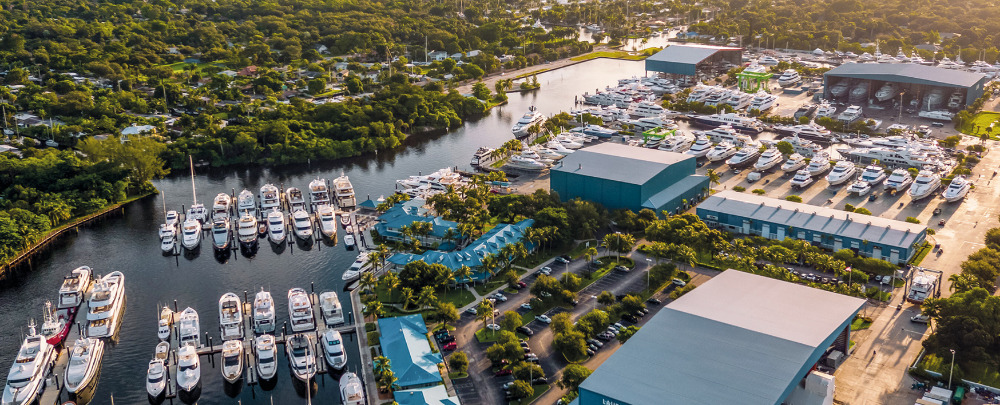Going, going, gone!
US marinas and refit yards are being snapped up by massive corporations. Guest author Kevin Koenig explores the factors behind this spending spree…
Lately, it seems that wherever one looks, there’s a press release announcing a shiny, new purchase of an American refit yard or marina by a large corporation. All the usual suspects are involved here. The most commonly heard names among the purchasers are Safe Harbor, Suntex, MarineMax and OneWater. And the entities being snatched up include some of the most iconic names in the US such as Rybovich, Bahia Mar and Lauderdale Marine Center (LMC).
But what’s driving this trend? Historically, the yachting industry has been mainly small-business-oriented, with all the requisite charms and unavoidable inefficiencies that come with it. Why now have the big boys decided to swoop in and bundle together phalanxes of otherwise unrelated boatyards?
The easy answer is good old-fashioned American consumerism. There is money to be made. As is well documented, boat sales went through the roof during the pandemic, and all of those boats will need a place to live, as well as somewhere to go for repairs. The margins for housing and refitting boats are much more lucrative and dependable than for building them, as there is less dependence on an owner’s whims. There simply aren’t as many last-minute changes or deals falling through.
Secondly, Florida, the nexus of the American boat business, is booming. “Florida is projected to have a population jump from 21 million to 26 million in the next decade,” says Phil Purcell, CEO and president of the Marine Industries Association of South Florida (MIASF), which owns the Fort Lauderdale International Boat Show. “And five per cent of Floridians own boats, so you can do the math.” (It’s 250,000 new boats in Florida by 2033.)
But a more overarching view shows two very different paths to maximised profits for shareholders. One of them is taken by more traditional marine companies such as MarineMax, while real-estate investment trusts (REITs), like Safe Harbor and its parent company Sun Communities, have a very different angle.
No company in the marine industry in recent memory has gone on quite a buying spree as MarineMax has over the past few years. The company, based in Clearwater, Florida, has 100 locations worldwide – 60 of them in the US, of which about 20 are in Florida. It has either acquired sales rights or outright ownership of a litany of boat brands such as Cruisers, Intrepid, Wider, Ocean Alexander, Boston Whaler and MJM, among others, and has recently made a concerted push further into the big-boat space, with acquisitions of Fraser Yachts in 2019 and Northrop & Johnson in 2020.
With a good footing in the megayacht sales and management space, buying a place to dock and repair the boats was the next logical step. To that end, MarineMax recently announced the purchase of IGY Marinas, which includes Yacht Haven Grande Miami at Island Gardens.
“MarineMax used to just be ‘the Sea Ray dealer’ to a lot of people, but we have consciously been trying to diversify, and that certainly includes superyachts. We want the biggest and best superyacht portfolio in the world,” says Chuck Cashman, the company’s chief revenue officer. “Marinas are a big part of that, and service and refit are huge too. There will be close to 1,000 big boats launched this year, meaning over 24 metres, and it’s not like the old ones go away. Island Gardens has 50 berths and can take boats up to 550 feet [167.6m] with a 27-foot [8.2m] draft, and it has room for transients. Plus, it was already pretty nice when we bought it. We don’t look for broken companies, we want best-in-class companies that we can help.”
Cashman sees yards specifically dedicated to refits as the next big push, although he understandably did not mention any potentially targeted acquisitions. “We have a small refit yard in Dania Beach [Florida], and another location in Swansboro, North Carolina, that can handle boats up to about 120 feet [36.6m] looking to avoid the Florida hurricane season, and with our megayacht management teams utilising all the major refit yards, we will see what’s next.”
For Cashman and MarineMax, owning properties, as opposed to just selling boats, is hard-won wisdom. The CRO remembers the lean times of the last financial crash and sees the property purchases as insurance against them. “[Owning the yards] takes the cyclicality out of it, that’s a lesson we learned after 2009,” he says. “The businesses that had slips and marinas did a lot better than the businesses that didn’t.”
James Brewer, managing director of Fort Lauderdale’s Roscioli Yachting Center, which was acquired by OneWater for $S30 million in 2021, echoes Cashman’s statements. OneWater follows similar principles as MarineMax, hardly surprising considering its president, CFO and CTO are all MarineMax alumnis. “OneWater needed a service yard for its Sunseekers,” says Brewer, referencing another of the conglomerate’s holdings. “And Roscioli was a reasonably sized service centre that could cater to those boats. We were the right play at the right time.
“In 2005, Bob Roscioli had done an expansive renovation of the facility with eight self-contained bays and a 300-ton mobile lift. For big players in the industry, like OneWater and MarineMax, they are trying to expand and fill gaps in their portfolios with these refit yards and marinas, to increase their standing in the industry.”
Of course, not every major player in the marine industry is necessarily a marine company first. Both Suntex and Safe Harbor are REITs, investment vehicles that specialise in owning income-producing real estate across property sectors. Suntex has gone on a buying spree in the past few years, shovelling marinas into its portfolio at seemingly every turn, bolstered in large part by a merger with competitor Westrec earlier this year.
However, Safe Harbor is the more interesting case study as it has spread its aegis over not just marinas, but also major refit yards such as Lauderdale Marine Center, West Palm Beach’s Rybovich and the Newport Shipyard in Rhode Island.
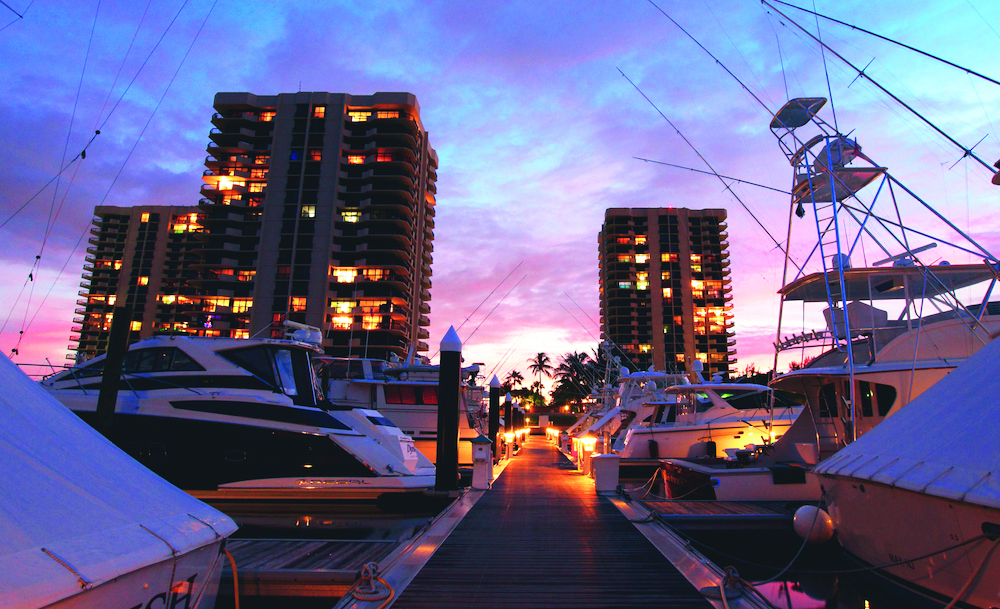 Safe Harbor
Safe Harbor
To maintain their special tax treatment as a REIT, these companies need to ensure that at least 90 per cent of their income is generated by real estate. As inspiration for how to run superyacht yards as a REIT, executives looked to an unlikely source – trailer parks. REITs that own trailer parks and recreational vehicle parks own the land and lease out spots, plus utilities, to renters. They realised that the same model could be applied to marinas and shipyards, putting in slips and workspace for contractors and subcontractors.
These boatyards are tempting to large, public companies because after initially high fixed costs (particularly when building hurricane-proof docks), they have reasonably low overheads and provide a consistent stream of revenue, in large part due to customer loyalty. This customer loyalty is mainly achieved through investments in crew facilities, as captains generally decide where a boat will stay. Rybovich, for example, is a favourite among crew thanks to a pool, state-of-the-art gym, yoga lawn and a concierge service. And Lauderdale Marine Center is not far behind.
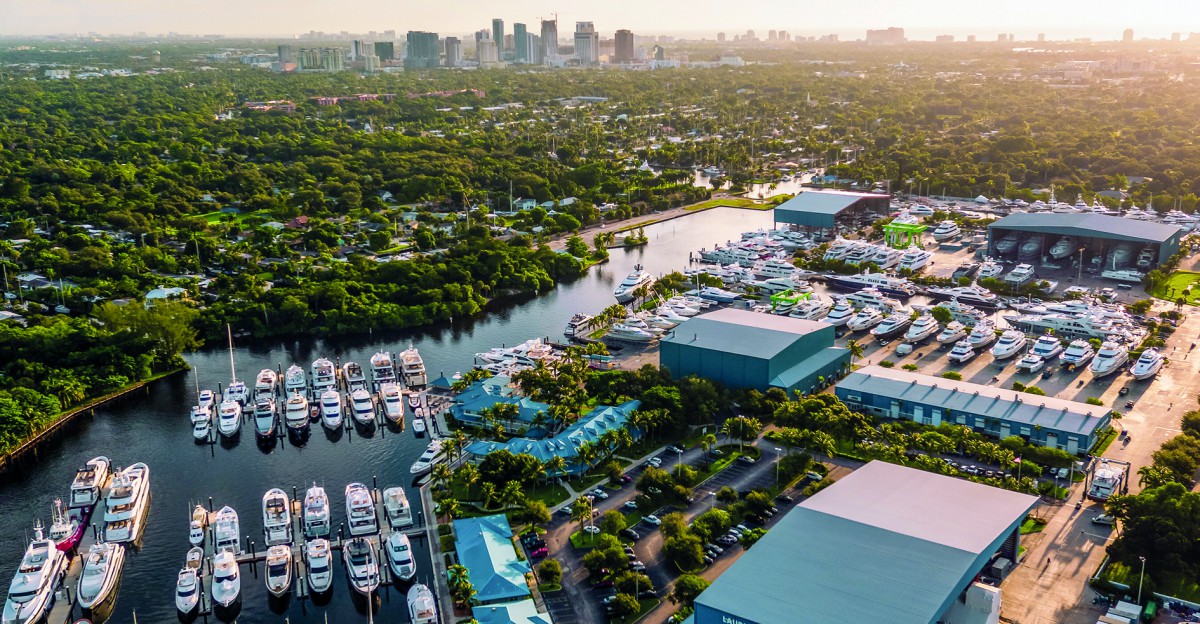 Lauderdale Marine Center
Lauderdale Marine Center
“We like people to know that we are sister yards with Rybovich,” says Frank Gernert, director of facilities at LMC. “There’s a streamlining effect. Memberships allow boats to go down the coast from one Safe Harbor facility to the next, and because the boat is in our system, we have all the service details and get a good handle on the boat’s history and what needs to be done.” It’s a system that also happily eliminates headaches for captains, as well.
Despite this mini-monopolisation of boatyards, there is little talk of raising fees because these buyers all say they are in it for the long term and, therefore, are enjoying a slow burn when it comes to revenue. “Fees have stayed the same,” says Gernert. “We charge by the foot and there can be variables to that, but rates aren’t going up. Safe Harbor has done a great job of applying economies of scale to the marine business.”
Others across the industry see outsized advantages to large-scale corporatisation. “I think it’s a great thing for the industry,” says Bob Denison, whose family’s famed brokerage, Denison Yacht Sales, was sold to OneWater last spring.
 Bob Denison
Bob Denison
“I think this consolidation of ownership provides a better customer experience, and I think one of the things that will happen is we will see the ability of these companies to roll up their technology and get the systems and processes in place to be superior to any of the smaller owners that existed before [the larger companies] came on to the scene.”
Selling was easy, says Denison. “What we found with OneWater was normal, smart, good people who made an interesting offer and let us maintain a level of control in the company, including branding, staff and management.” OneWater, like MarineMax, runs on the ‘if it ain’t broke, don’t fix it’ principle, and so far it seems to be working well for everyone involved.
Some rumblings of fear among industry insiders point to the fact that these REITs are, after all, real-estate companies, and might be more interested in turning iconic boatyards into just another waterside buildings complex. But it seems unlikely that will happen, even if rules and regulations permitted it. What these big companies identify in boaters is an avid and passionate community, and of course not everyone has a dock at their house big enough to support their boat.
The smart money with the boatyards then, is the long money. The business of boating saw a massive boom during the pandemic, and – to echo Cashman’s sentiments – those yachts aren’t going anywhere.
This feature first appeared in the Superyacht Refit Report. For full access to all of our reports click here ...
Click here to become part of The Superyacht Group community, and join us in our mission to make this industry accessible to all, and prosperous for the long-term. We are offering access to the superyacht industry’s most comprehensive and longstanding archive of business-critical information, as well as a comprehensive, real-time superyacht fleet database, for just £10 per month, because we are One Industry with One Mission. Sign up here.
NEW: Sign up for SuperyachtNewsweek!
Get the latest weekly news, in-depth reports, intelligence, and strategic insights, delivered directly from The Superyacht Group's editors and market analysts.
Stay at the forefront of the superyacht industry with SuperyachtNewsweek
Click here to become part of The Superyacht Group community, and join us in our mission to make this industry accessible to all, and prosperous for the long-term. We are offering access to the superyacht industry’s most comprehensive and longstanding archive of business-critical information, as well as a comprehensive, real-time superyacht fleet database, for just £10 per month, because we are One Industry with One Mission. Sign up here.
Related news
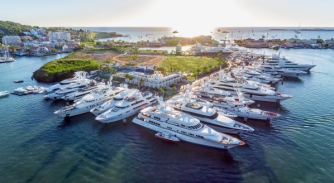
MarineMax publishes 2022 financial results
The USA based marine industry giant announces results for its first quarter ended December 31, 2022
Business
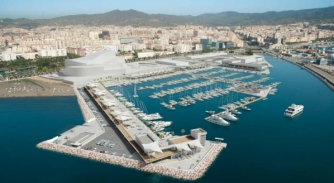
MarineMax appoints New Director of Marketing
Abbey Heimensen, Vice President of Marketing, speaks about Amanda Ward's passion for the industry
Business
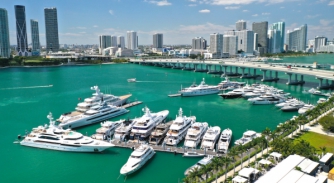
MarineMax to acquire IGY Marinas for $480 million in cash
MarineMax expects the transaction to close in the first half of fiscal 2023, subject to the satisfaction of customary closing conditions
Business
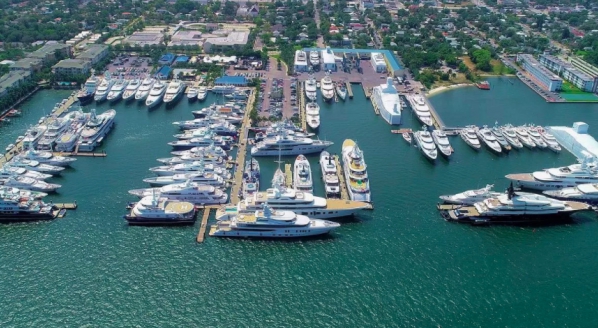
Safe Harbor Marinas acquires Rybovich
Dallas-based Safe Harbor Marinas continues to add to its growing marina portfolio
Business

MarineMax acquires Northrop & Johnson
The acquisition follows MarineMax's acquisition of Fraser Yachts in 2019
Business
Related news
MarineMax publishes 2022 financial results
2 years ago
MarineMax appoints New Director of Marketing
2 years ago
Safe Harbor Marinas acquires Rybovich
4 years ago
MarineMax acquires Northrop & Johnson
5 years ago
NEW: Sign up for
SuperyachtNewsweek!
Get the latest weekly news, in-depth reports, intelligence, and strategic insights, delivered directly from The Superyacht Group's editors and market analysts.
Stay at the forefront of the superyacht industry with SuperyachtNewsweek


